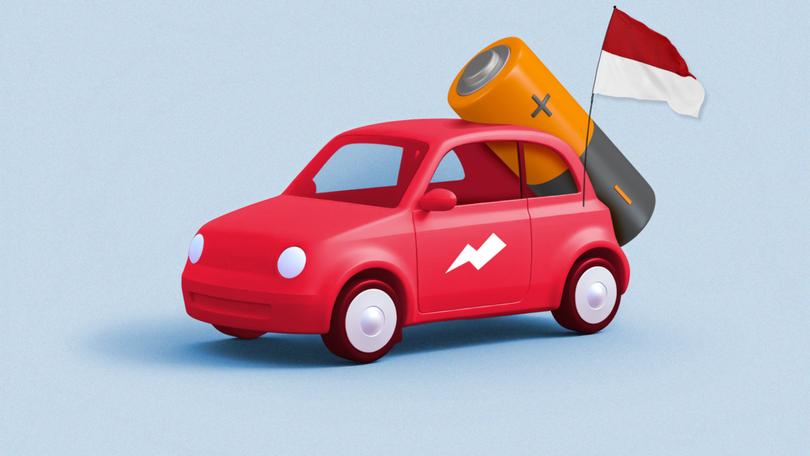THE ECONOMIST: Just because Indonesia has nickel, doesn’t mean it should make EVs
Economic nationalists are making a reckless bet based on Indonesia’s resources boom.

Economic nationalists are making a reckless bet. Nothing emboldens politicians like defying the world’s advice and being proved right. Such is the case in Indonesia.
In 2014 the country moved to ban exports of unprocessed ores. The idea was to force companies that crave its abundant minerals to refine them inside the country, capturing valuable investment and creating jobs. Multilateral institutions were sceptical. So was The Economist.
Falling ore-export earnings could widen the current-account deficit and weigh on the shaky currency, the rupiah, we warned at the time.
Sign up to The Nightly's newsletters.
Get the first look at the digital newspaper, curated daily stories and breaking headlines delivered to your inbox.
By continuing you agree to our Terms and Privacy Policy.For one commodity, however, the arm-twisting has worked. Indonesia has the world’s largest reserves of nickel, a crucial ingredient in certain electric-vehicle (EV) batteries.
Since 2020, when the export ban came into full force, it has come to dominate the nickel market. Dozens of nickel smelters have opened since 2020, as investors submit to the government’s rules in order to lay hands on the metal. Indonesia’s share of the world’s refined-nickel production has doubled since 2020, to nearly half the total. In 2023 Indonesian exports of processed nickel were $US22 billion ($35b), or 9 per cent of the country’s total exports, up from 2 per cent in 2019.
The nickel bonanza lifted Indonesia’s trade surplus to a record high in 2022.
Indonesia’s resource nationalism has overwhelmed other producers. Nickel mines are going bust from Australia to Brazil; perhaps half are unprofitable. Indonesia’s, by contrast, have been buoyed by a surge of investment from Chinese mining giants such as Tsingshan. Chinese smelters in Indonesia have been innovative.
Because of Indonesia’s geology, it was once thought that its nickel-ore deposits were too expensive to refine at scale. But Chinese companies have found a way.
Now Indonesia’s elite, led by Prabowo Subianto, the new president, wants to go further. His government may soon curtail supply to prop up prices, as if it were a one-country OPEC for nickel. Those around Mr Prabowo dream of building a top-to-bottom electric-car supply chain, from raw mineral extraction and processing to battery-making and vehicle assembly. Indonesia has nearly all the natural resources necessary to build EVs, they reason.
Why should anyone else capture the value? The government is now trying to pump up domestic demand for EVs with subsidies, and is courting EV supply-chain investments from the likes of BYD and Hyundai.
Yet Indonesia’s gung-ho industrial policy is wrong-headed. Market power in nickel does not imply similar power over the whole EV supply chain. Raw materials are only a small part of the cost of the average EV. And when it comes to other factors that determine where carmakers produce, such as logistical capacity and local know-how, Indonesia is less attractive than neighbours such as Vietnam and Thailand.
Indonesia is expanding supply during a period of brutal competition in both the EV and battery markets, with muted demand worldwide and overcapacity in China. What’s more, the pricey nickel-based batteries Indonesia is best-equipped to make are not what local consumers want. They prefer vehicles made with cheap lithium-iron-phosphate batteries. So far, domestic EV sales have been paltry.
In short, Indonesia’s nationalistic approach is likely to be a costly failure. In contrast to nickel processing, where its grip on the ore gave it power over miners, in EVs it is trying to subsidise its way to market share. Though its public finances are sound, the fiscal toll of so many giveaways will be heavy.
Given enough money and political attention, some sort of supply chain will surely end up being created. But the costs to Indonesia could vastly exceed the benefits. Officials argue that foreign carmakers will train Indonesians, but this seems unlikely on a large scale. The tally of planned investments looks modest. And a lack of local expertise will tempt firms to import foreign high-skilled labour.
A different approach is needed. Indonesia could specialise in parts of the EV supply chain, such as nickel-battery precursors, rather than trying to do everything. And if Mr Prabowo wants to promote prosperity, he should focus on broader reforms, such as curbing corruption, cutting red tape and fixing a leaky tax system. If Indonesia must subsidise something, then improving primary health care or inefficient ports would be a better use of the cash than a reckless bet on EVs.
